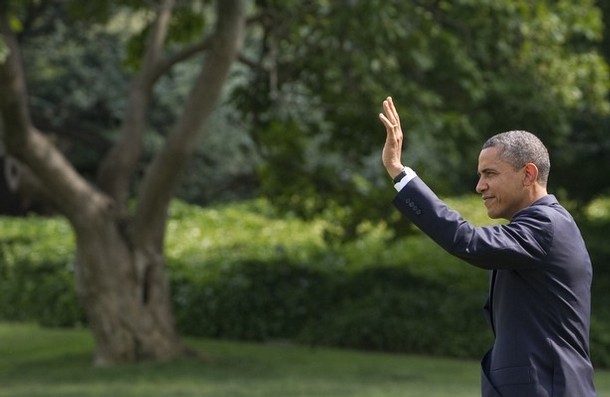President Obama’s home state of Illinois has become the latest to step back from implementing a health insurance exchange, according to the legislator charged with leading the effort.
“I’ve suspended the talks on the Illinois insurance exchange until the Supreme Court makes its decision, which we expect in June,” Rep. Frank Mautino (D-Spring Valley) told NPR affiliate WIUS. “As the negotiator, it’s very difficult to have … businesses decide how much they’re willing to pay to run an exchange, when the federal law may go away. So I’ve lost a lot of the strength of negotiation.”
Higher Legislative Priorities
State lawmakers have higher priorities than implementing the federal health care law many believe may be struck down, says Jonathan Ingram, a health care policy analyst at the Illinois Policy Institute.
“Illinois’ biggest issues right now are skyrocketing Medicaid costs and a massively unfunded pension system,” said Ingram.
“The state realized that it just doesn’t have the time or resources to waste implementing a new bureaucracy that could be thrown out by the Supreme Court later this summer,” Ingram added. “State officials had been meeting with the insurance industry, businesses, and special interest groups to come to some kind of agreement on how the exchange is run and who will pay for it.”
Ingram says funding is the sticking point. Other states, such as Oregon, have adopted taxes on health insurance premiums to fund their exchanges under Obama’s law.
“The state expects an insurance exchange to cost upwards of $90 million per year, which will have to be paid for with tax dollars or fees that will be passed onto consumers,” Ingram said.
Expensive Federal Mandate
State Senator Kyle McCarter (R-Lebanon) says the exchange mandate is misguided.
“I don’t want us to see us move forward to complete work on this exchange. The health care debate has really been about lowering costs, and I don’t think creating an exchange is going to lower costs,” said McCarter. “What is really going to lower costs is to create reforms that will limit costly litigation, lower the cost of malpractice insurance for providers, let individuals manage their own insurance, and open up competition across state lines.”
Ingram says there’s no real benefit for Illinois in implementing an exchange prior to the Court’s ruling.
“Illinois has nothing to gain by setting up an ObamaCare exchange,” Ingram said. “It will have no control over any exchange it set up, as federal rules will dictate virtually all aspects of the exchange’s operation. The federal government can change those rules at any time, but the state has no flexibility to change how it runs the program without special permission from federal bureaucrats. And when premiums go up by 30 to 40 percent under the law, as even the chief architect of the law predicts, state officials will bear the blame from taxpayers.”





